Bangladesh. Part IMapMay 9–11, 2007 The surface area of Bangladesh is equivalent to Lithuania and Latvia taken together. The upside is that there are eight million more people living here than in all of Russia. Take Monaco, for instance. It’s the most densely populated territory in the world — so what? Population density is impossible to gauge with the naked eye; a photo of a crowd of people is just conjecture. You can illustrate it with six boats: 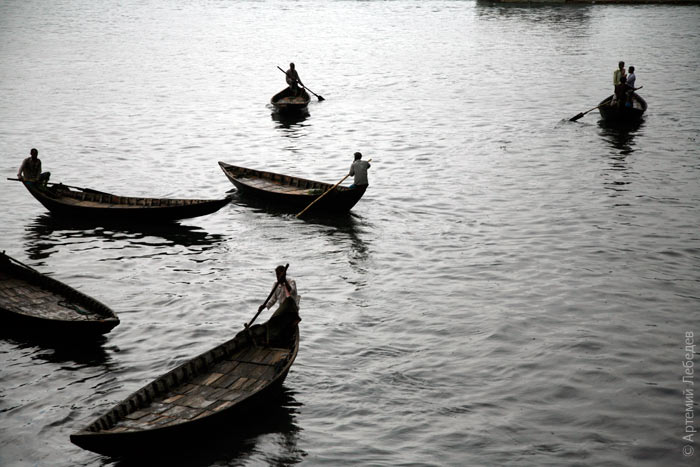 Or with six pupils aboard a “school bus”: 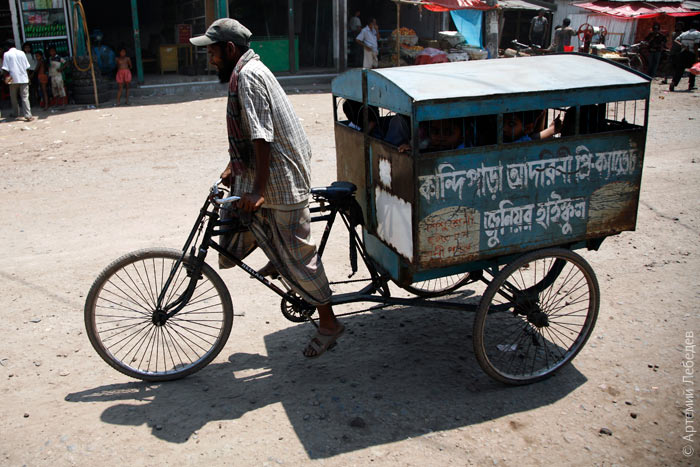 Also, Bangladesh is considered to be the poorest country in the world. However, yet again, it’s unclear how to measure this poverty with the naked eye. Are we to count the number of families whose entire worldly possessions boil down to just three mugs? By the look of things, the poverty here is the same as the poverty you’ll observe in any other country. For instance, here’s a communal kitchen in a coastal village: 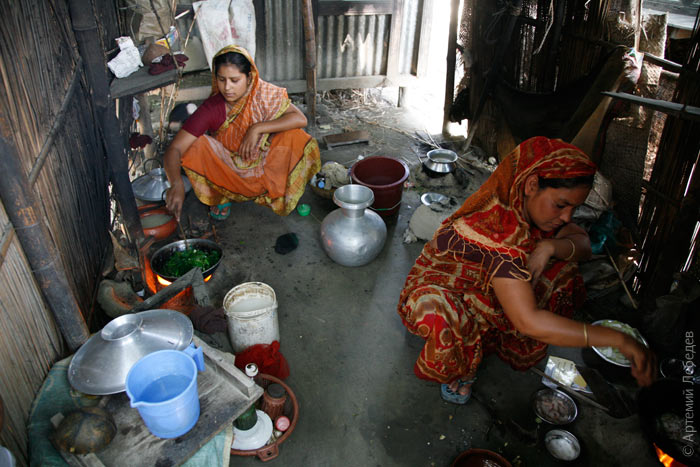 There’s a severe shortage of water here (Bangladesh’s western neighbours over in Calcutta are the object of envy). Not everyone lives on the coast, so city dwellers take advantage of the opportunity to shower whenever it rains. 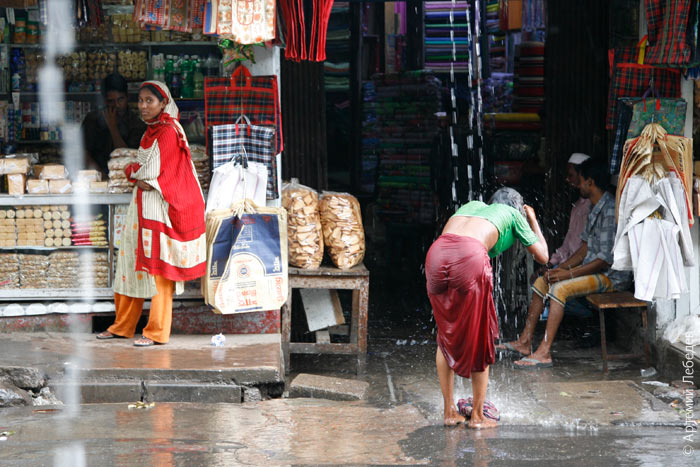 What is striking is the number of cycle rickshaws. No doubt about it, there are more of them here than anywhere in the world. Although I did my best to capture a dense clump of them, the photograph only conveys about a third of the overall impression: 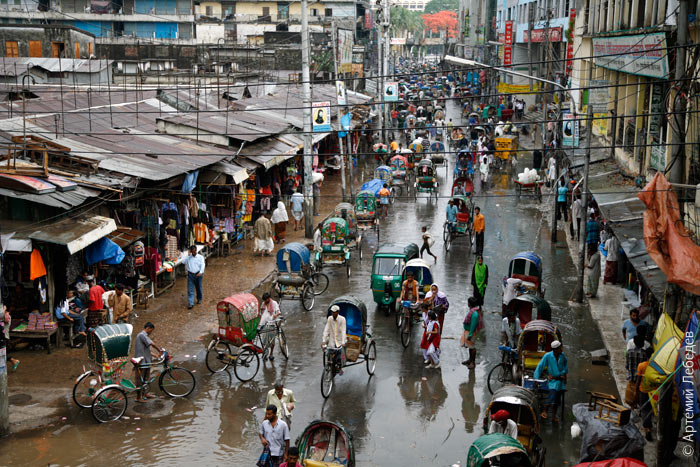 Decorations on every single covered wagon are an absolute must. 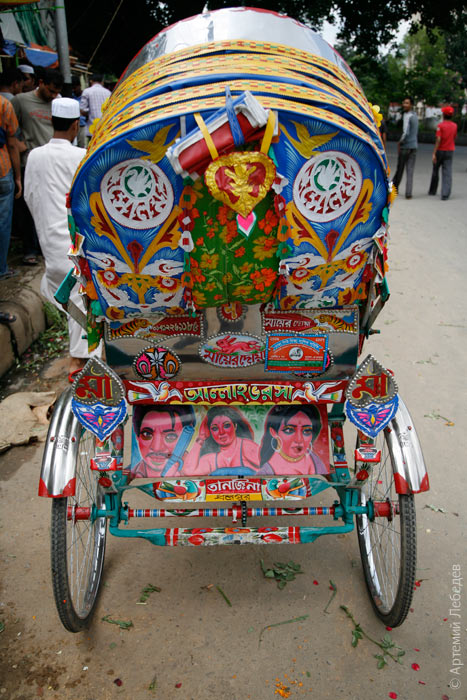 Movie characters and architecture can be found among the decorative motifs. One of the structure’s bolts unavoidably ends up in the actress’ mouth, reminiscent of a dummy. 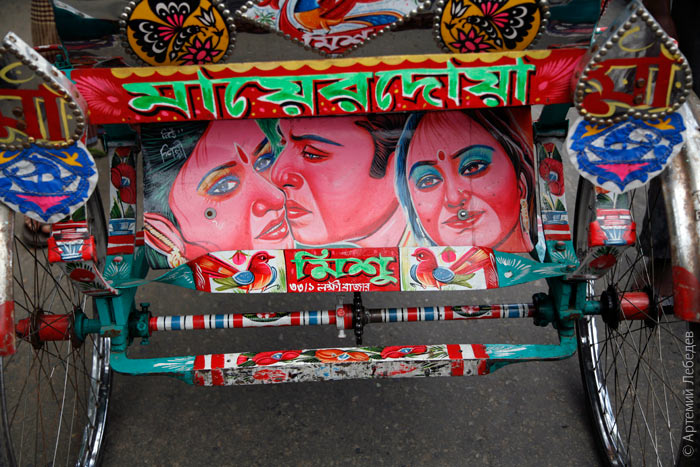 Cables vigorously tangle like spaghetti (in places where there’s electricity, obviously). 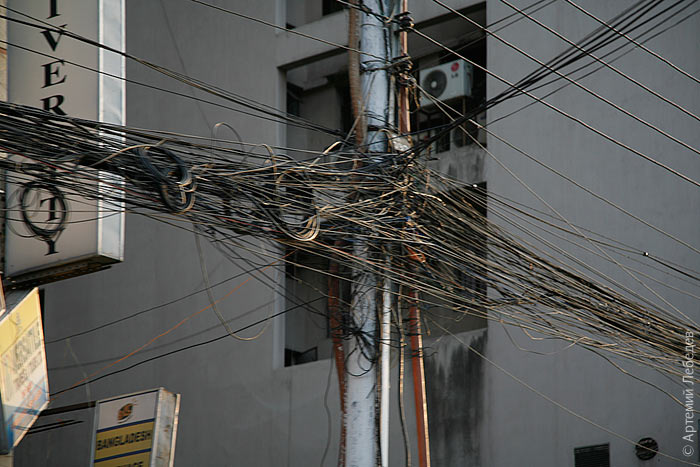 There is absolutely no need for a house to be fully built for people to move in. 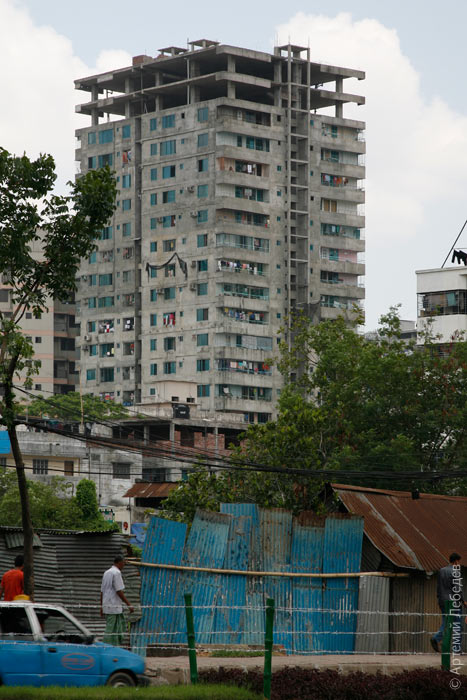 The corner of a buildling in a bustling neighbourhood. For the time being such sights still command attention, but very soon Dhaka is going to fall behind, because no one can keep up with Moscow in the race to disfigure a city posthaste. 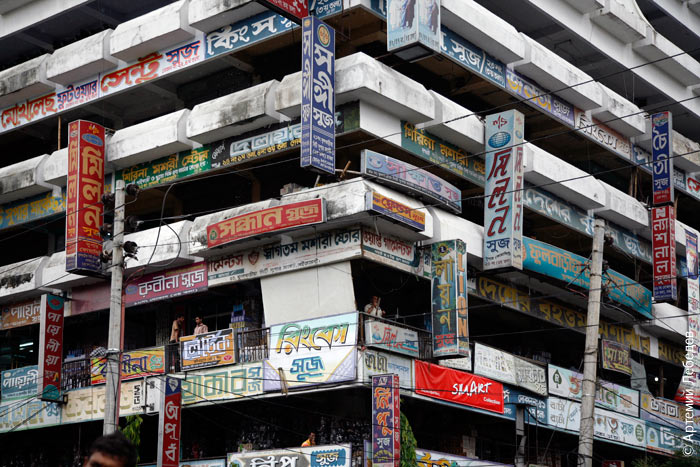 No one bats an eyelid at this man selling a drink called “Uro-cola”. They’re used to it. 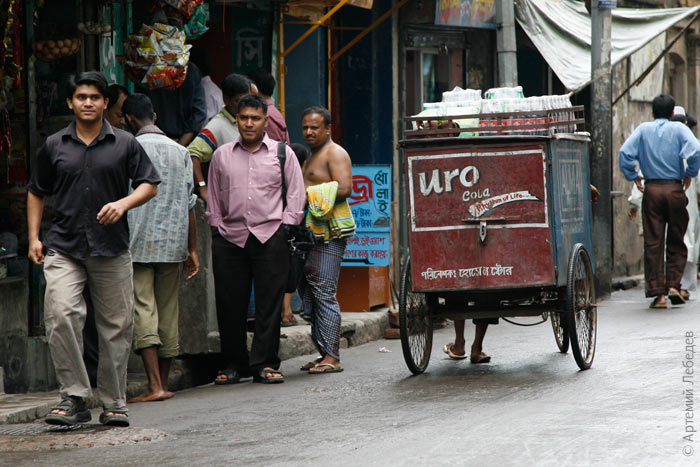 Bangladesh is a Muslim state. That’s why people often wear robes here. 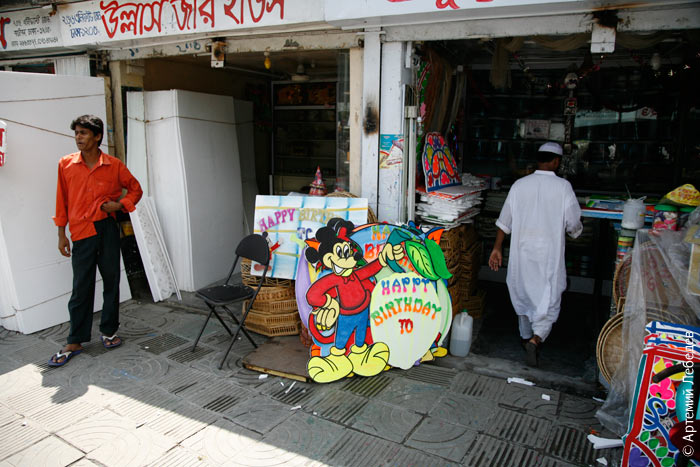 Of course, the main difference between Bangladesh and its western neighbour (aside from religion) is the way men piss in the street. In India everyone pees standing up. Here they do it sitting down. Innocent readers may conclude that the man in the photograph is praying. No, esteemed readers, this guy is taking a leak into a special ditch. It’s likely that this urinary tradition came about because hoisting up your robe, which doesn’t have a fly, is unseemly. 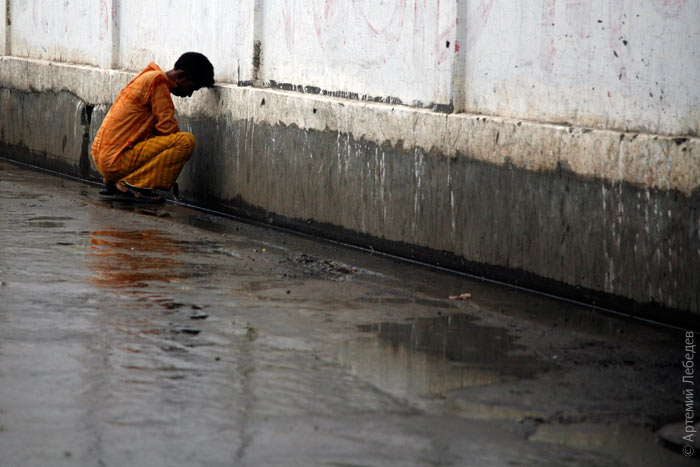 Latrine canals line all of the walls. It goes without saying that women cannot use them — in any event, they’re supposed to remain in the home. Here’s yet another ditch. Behind that wall there’s an Armenian temple, its presence here totally inexplicable. 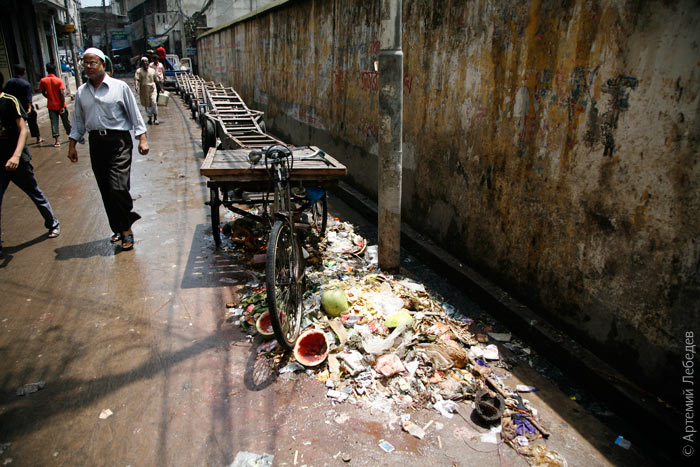 There’s an ancient Armenian cemetery next to the temple. The custodian is an old man who keeps poultry. 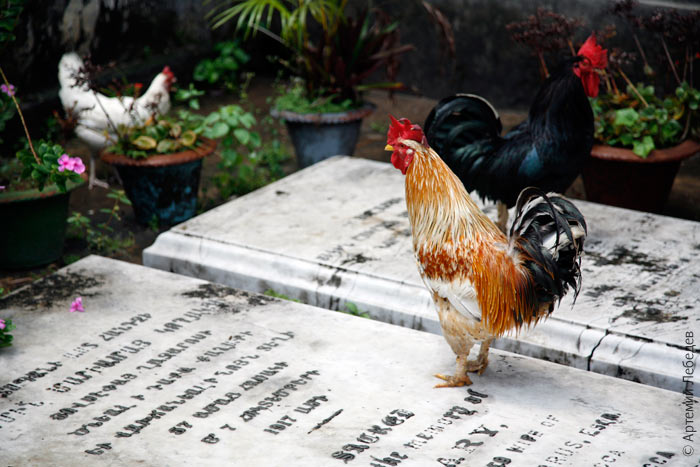 Now this is interesting. Yet another heap of entertainment options for the middle classes called “Yerevan Plaza” recently opened in the centre of Moscow. It’s a shame that they didn’t come to me for advice: I would’ve recommended they spend the money they forked out for cutting out and lighting up the nauseating (and unnecessary) word “plaza” on support for this islet of Armenian culture in faraway Dhaka instead. There that money would’ve kept them going through to the next century. 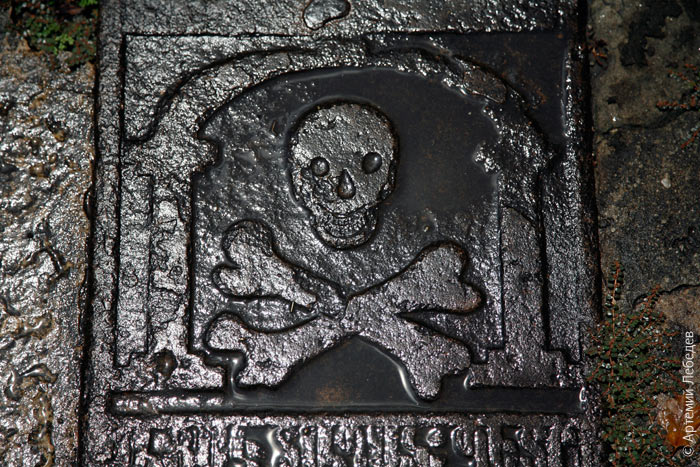 After all, someone has to see to the matter of culture. For instance, here we have a bus library. To the right of it there’s a flatulent tuktuk, the second most popular type of transport after the cycle rickshaw. Flatulent tuktuks are allowed to ride alongside the cars, whereas cycle rickshaws are banned from the city centre — otherwise the congestion would be unbearable. 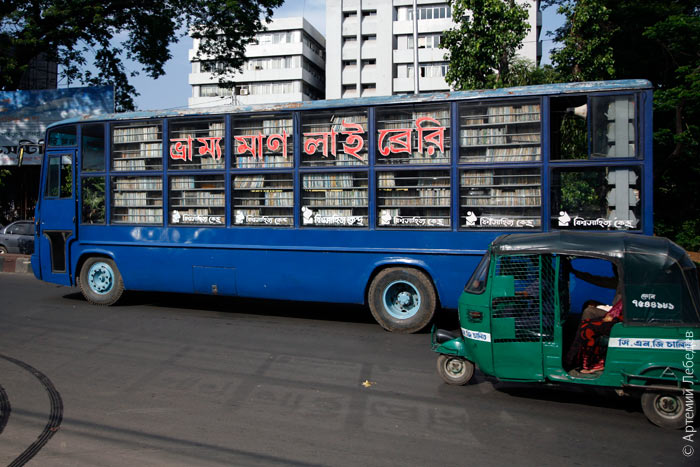 Traffic lights are a recent arrival in Bangladesh. In Dhaka a handful of them even light up. But they don’t mean anything, literally nothing at all. This isn’t South Korea, where drivers glance around from time to time and will run a red light, but only once they’re satisfied that there’s no police around. Here everyone drives as they please. Intersections where traffic controllers are stationed being the exception, of course. It must be said that the traffic controllers make no attempt to help drivers get to grips with the colour- coded system. Instead, they regulate the flow of traffic based on the level of congestion, forcing everyone to run red lights. 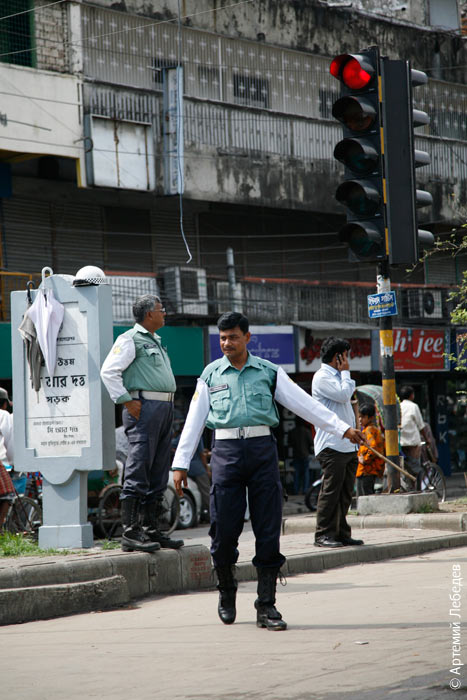 From here on my itinerary runs alongside a river, which has brick works on its banks. It’s a seasonal business — for six months of the year they produce bricks, for the other six the kilns are submerged under water. 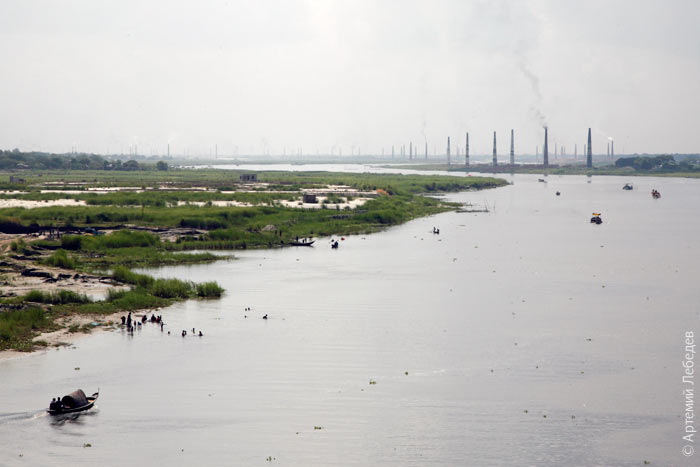 Going down the river is pleasant, but a tad hot — forty-five degrees in the shade. 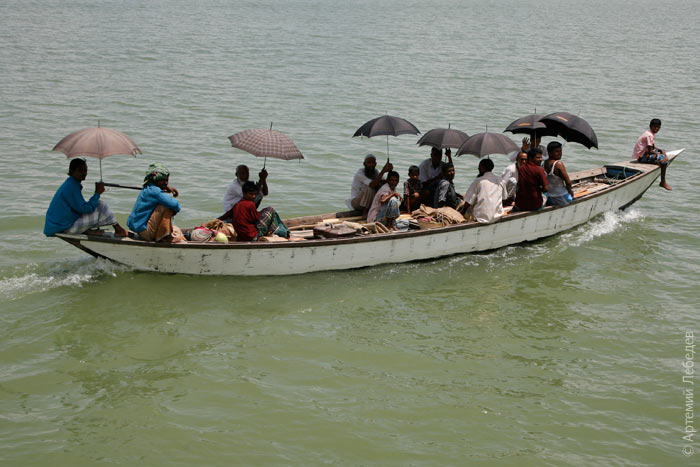 The Bengalis are masters of piling things up in great heaps. To begin with, buses, which have boots welded to their roofs, all the way through to a run-of- the-mill ferry. 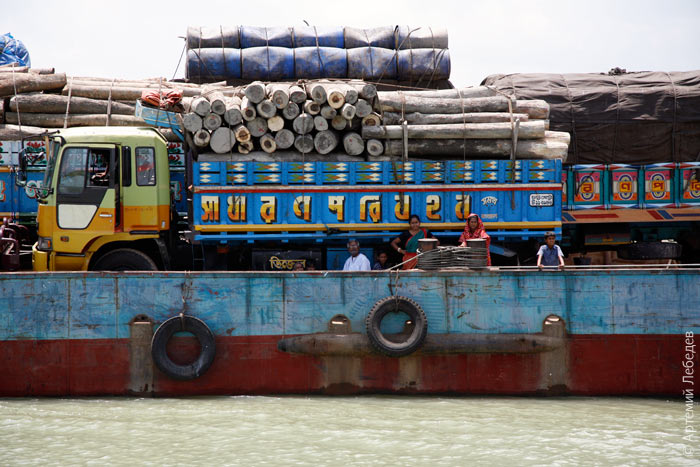 Houseboat: 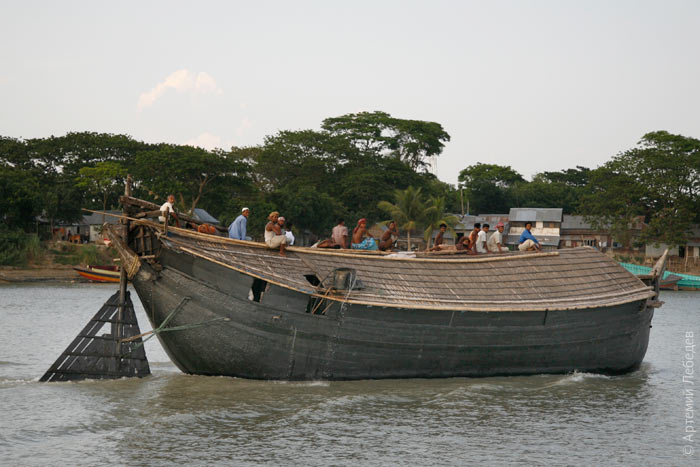 This straw village is different from a similar one in Zambia because there are neither fences, nor rectilinear houses in the shot. 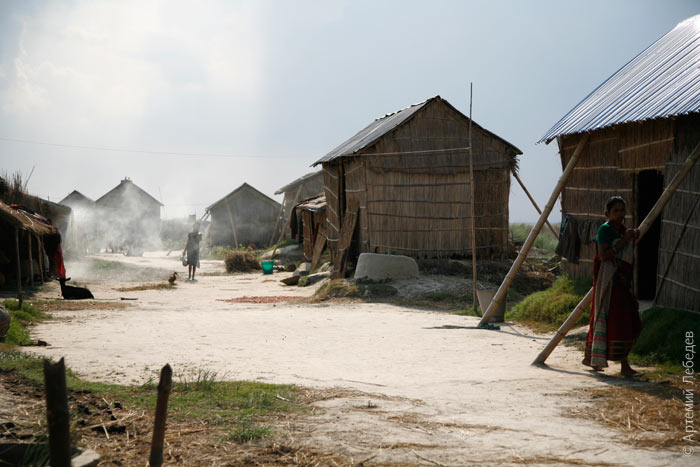 By the way, all of the bricks in Bangladesh are marked the with the manufacturer’s initials. They don’t fire nameless bricks here. 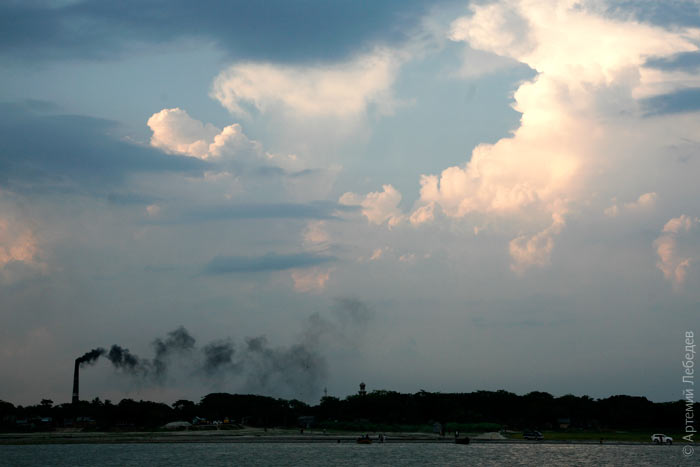 On the way to the airport I got chatting to my driver, who told me his family’s tragic tale. He had a daughter, very beautiful, intelligent, everything you could ever wish for. She almost got to be on TV (very few people have a TV in Bangladesh, but it’s still a huge deal). However, at some point she fell in love with a handsome young man, lost her head and moved to a different city to live with him. A month went by — the young couple intended to marry. The young man laid down his conditions for the father of the bride to fulfil: a colour TV, a fridge, 3000 dollars and enough food for all of the wedding guests. The father (that’s my driver) sunk to the depths of despair — never in his life had he had that much money. He started asking for leniency, yet the young man would not yield. At this point in the story we drove past the set of a local movie, which featured a red convertible (it must be said that Bengali films are ten times crappier than Indian ones, which the Bengalis themselves readily admit). The making of this movie had piqued the interest of the whole neighbourhood, the roofs and balconies of all the nearby blocks were chock-a-block with gawkers, plus more were running up to get a closer look. 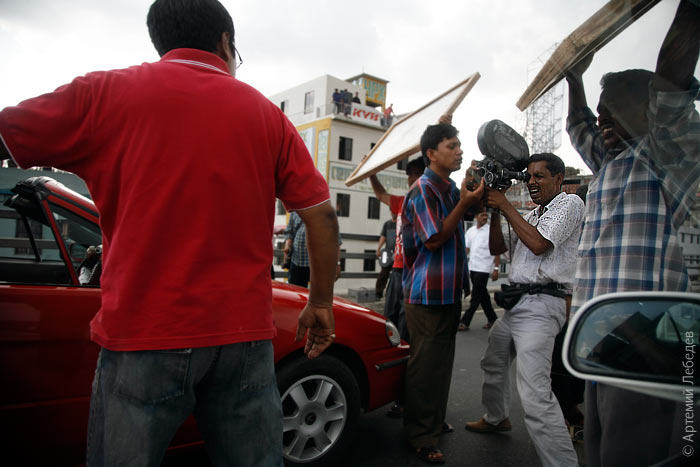 So it turned out that the young man found out that the young woman’s father worked at the “Sheraton” hotel. He concluded that this must be fate, his chance to get rich. But the father was not actually on staff, he was an independent contractor without any rights, nor a hefty salary. However, this explanation did not satisfy the young man in the slightest, and he continued to insist on all of his conditions being met. How did this story end? The daughter took her own life. Her mother went mad, her brother is inconsolable with grief, and the father is working as a driver. The handsome seducer never got his colour TV. Bangladesh, 2007. |